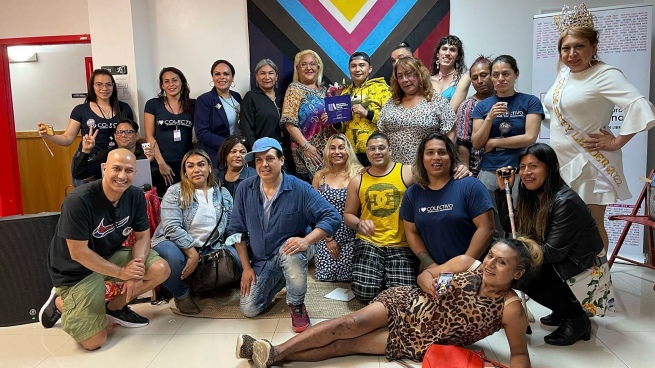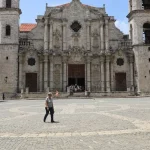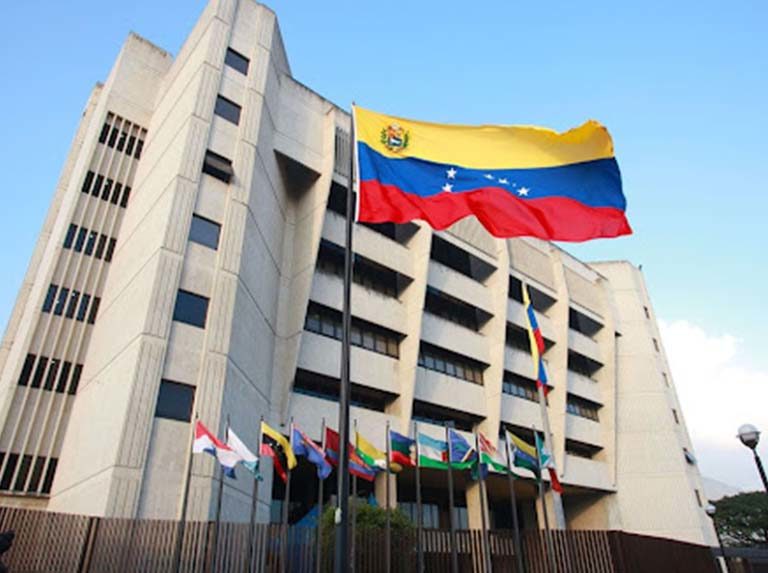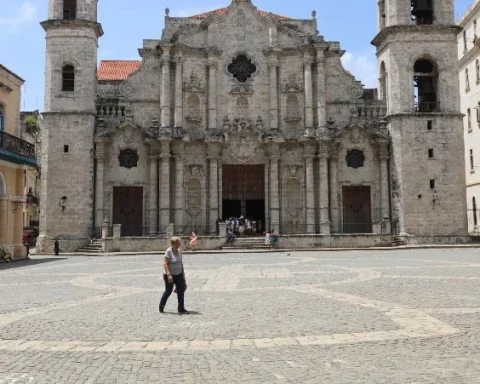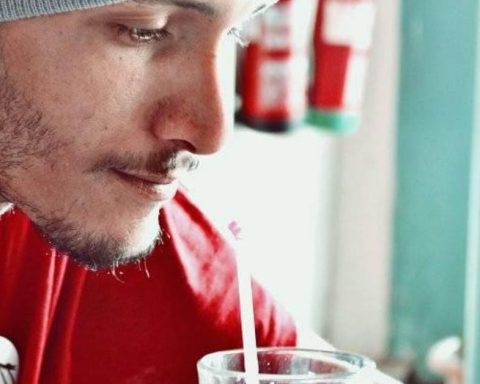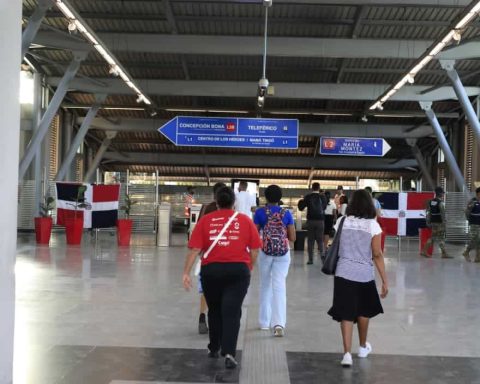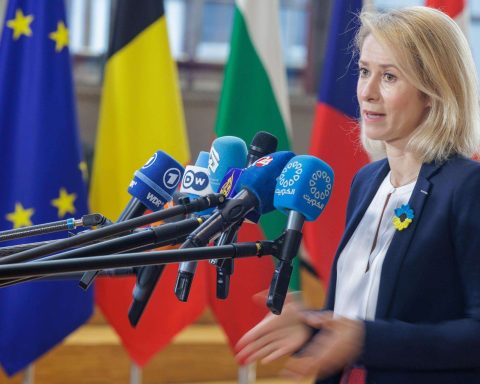The first LGBTIQ+ library in New York, located in the Jackson Heights neighborhood, is named after Belén Correa, the historic activist and founder of Argentina’s Trans Memory Archive.
Luisa Paz from Santiago and Belén Correa from Buenos Aires, who are active and work in New York for more and better rights and achievements for people of gender diversity and dissidence, participated in the inauguration of this space, stressed the importance of their foundation and outlined the problems and challenges of that community in the Big Apple.
“It is a great pride that the Latin community that lives in New York, especially the trans women, see Argentina as a beacon in terms of rights and achievements,” Paz told Télam.
And she stressed that “the compañeras take into account the militancy and the trajectories of the compañeras of the trans community of our country, when putting the name of Belén Correa to their library.”
“We believe that these significant symbols that are being conquered are often unattainable, such as the fact of being able to receive recognition in life,” he added.
Therefore, he described as “important to think about those trajectories” and “not to wait for a partner to leave this plane to just recognize her trajectory, militancy and struggle.”
“Belén is a historical militant, with whom we have been articulating work and struggle since 2000, which is why I am proud,” he stressed.
From New York, Paz commented that the LGBTIQ+ communities “have achieved many things” and without a doubt “that also helps us to take our communities, transfer all those achievements that the girls have here in their advances.”

For his part, Correa analyzed in dialogue with Télam that “the important thing is that here, in the United States, especially in the New York area, there is no Latin library, there is no library with books in Spanish and much less with themes LGBTIQ+, and that’s why it’s important.”
The library is located where the entire Latino community is, which is also where the trans community does its work and has its organization, which is called Intercultural Transgrediendo.
“We are happy because we have brought many books to donate,” said Paz.
Correa stressed that “in the trans community we are used to losing and having things taken away from us, promoting the library and reading is so that the compañeras can have a vision and can have a treasure that they will never be able to take away: knowledge. “.
From New York they highlight that the Argentine LGBTIQ+ community “has been a benchmark” in conquests
The executive director of the Colectivo Intercultural Transgrediendo de Nueva York, Liaam Winslet, highlighted that the Argentine LGBTIQ+ population “has not only been a benchmark, but has also allowed certain things to be promoted according to the realities of our countries.”
In a dialogue with Télam, the activist said that Argentine activism “allows us to have a broader vision of the struggles and achievements of rights for our communities and, based on that, we have also been able to replicate many of those achievements in our places, our trenches, based on our realities”.
Because -he said- they seek “to change these public policies and laws that continue to criminalize and stigmatize us”, since “in New York, the sex workers, the collective and other organizations, promoted a campaign in the State Assembly, to be able to demand that sex work be decriminalized, because we are still experiencing this persecution by the system and the police”.
“We want the state to change that, because they continue to criminalize us, we continue to be imprisoned, persecuted, humiliated and murdered,” she emphasized. And he added: “When we got here we realized that it was not easy at all, but it was not impossible either and we have advanced and conquered some things, but we want much more.”
“Every day the system changes, governments change, political representatives change, many times they forget if we don’t remind them or we are there constant and loud to tell them that our rights are not negotiable and that our lives matter,” he said.
“The Latinx trans community (English neologism to include cultural and gender diversity), black, indigenous, migrants, people deprived of their liberty, sex workers continue to demand justice, demanding our rights, that our existence be made visible” , he emphasized, and considered that “we are in an epic and historical moment and the library has also been part of this”.
It refers to the first LGBTIQ+ library that was inaugurated in the organization and that bears the name of the Argentine activist Belén Correa.
Winslet explained that the Colectivo Intercultural Transgrediendo is a community-based organization that was founded in 2015, and emerged from an idea of two trans Latina women, one of them, Lorena Borgas.
The activist “fought and lived in the ’80s and ’90s, a time when the trans community continued to be subjugated, forgotten, imprisoned, and I as a migrant woman who was also forced to move from my country of origin.”
They wanted a “space led by us and for us”, so it all started as “a very small space and has now become a large community space, safe for our community, where we provide different services, legal, support , containment, connections to health, and also clothing, ready-to-eat food, greens and vegetables, thanks to the collaboration of other organizations with which we work,” he explained.
“With the pandemic it was something very strong, it impacted us all and continues to impact us. Now the United States is in a very difficult situation economically as a result of the war and other situations that further expand the situation of poverty, inequality and forgetfulness of our community, especially the undocumented Latinx trans community, sex workers,” she reflected.
To which he added: “Many of us do not access the health service, something essential and other basic things such as housing, since many of us live in overcrowding, others live in shelters that are mixed with people who have not changed that transphobic mentality towards the trans community. “.
Such is the case, he commented, that “we have had situations in which we had to shelter our sisters in our homes, until we got a safe space for them, them and them, and so we continue to fight.”
In July of last year, the Colectivo Intercultural Transgrediendo, which militates for the rights of the transgender community from Queens, New York, launched the Trans Revolt podcast, which is available on Spotify.
“We are now in the 21st century, in the (year) 2021, things have changed. The struggle that many trans people in the community led before me, during and after, when the legacy remains, are what have helped Let’s have a better life in the future,” reflected Jennifer Orellana, a trans activist from Puerto Ricouna and one of the voices invited to the podcast.
“And that is what we are promoting, the books written by activists, we have also brought the books of Camila Sosa Villada -an Argentinian trans writer, winner of the Sor Juana Inés de la Cruz literary prize- in order to encourage them to start holding writing workshops to be able to encourage the writing of trans people,” he said.
In turn, Liaam Winslet, executive director of the Colectivo Intercultural Transgrediendo, from New York, told Télam that “we named a library with a very inclusive vision, with a vision towards literature, history and struggle, from a diverse space like this , because we thought it was fair and necessary”.

“Living in a country where Spanish is not spoken is always a limitation for our trans Latinx community, since many of us do not speak English, which is why some of us have language barriers,” she explained.
The directive uses the term ‘latinex’, an English neologism used in the United States to include all Latin American cultural and gender identities.
Finding texts or books that talk about the trans queer narrative and other narratives that also involve the trans and feminist struggle is part of the work to maintain that connection.
For her, “in the times we are in, spaces like these allow us to empower ourselves, build ideas, work for our community, for our brothers, migrants, that is why, in these times, the library means a lot to everyone.”
He shared that “the entire community has received it very well, it is a space led, for the first time, by Latin trans people, founded by a migrant trans Latinx woman, who died in 2020 as a result of Covid and who founded our organization, which is Lorraine Borjas.

He explained that “the primary idea” of naming the library after Belén Correa “is to recognize the struggle of our sisters; she is part of the community and has done many things for our community.”
The idea is that Belén, as a migrant woman, faced situations similar to those experienced by migrants today.
“Putting the name of a Latin woman like Belén also allows other colleagues to be inspired, to see that we can recognize ourselves, value ourselves and understand that the spaces built collectively also deserve to have our names,” said Winslet, who valued that “many colleagues from everywhere are sending books”.
Meeting at the New York Consulate for greater inclusion of the trans population
The founder of the Trans Memory Archive, Belén Correa, and Luisa Lucía Paz, INADI delegate from Santiago del Estero, were received in New York by Consul General Santiago Villalba and Vice Consul Estefanía Donna, with whom they advanced on different issues towards the achievement of greater rights for the Argentine LGBTIQ+ population.
“We spoke with the consul and they are working to make visible all the progress we have made with respect to the LGBTIQ+ movement,” Paz told Télam, noting that they discussed “the idea of being able to implement the trans labor quota law throughout the territory Argentine, especially in the consulates and embassies”.
“We have been able to have a very clear conversation about what the embassy or consulate in New York or the pioneering United Nations missions can do in hiring a trans person, respecting the trans job quota law,” he explained.
He also indicated that the possibility of taking the Trans Memory Archive to the embassy was discussed, therefore “we are very satisfied.”
At the same time, he commented that “we were promoting Santiago del Estero, I brought him the video of the opening of LGBTIQ+ Tourism in Santiago del Estero, and the consul said he was going to broadcast it.”
“He really liked this work that we are doing in this sense in the province,” he added.
A few days ago, the LGBTIQ+ Tourism Conversation was held in the province.
